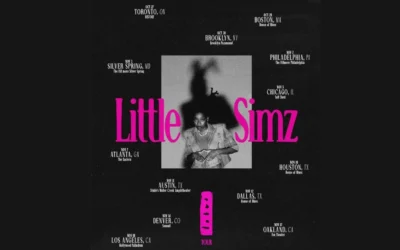New Jersey is about to put an end to paperless tickets just as its neighbor New York has in recent years.
On June 18, a New Jersey Assembly committee voted to ban the sale of paperless tickets in the state as part of a larger bill touching on many areas of primary and secondary ticketing.
The provisionally passed Bill A2258 requires ticket issuers to make known to the public exactly when and where tickets will go on sale, as well as the number of tickets available for public onsale and those held back for artists, special promotions, corporate programs and the like. Any taxes, service charges, and other fees must also be made known to potential ticket buyers at the time of sale.
The bill also bans the use of bots, or software programs that act to buy up blocks of tickets for resale before many in the public can get to them.
In addition, the bill repeals the state requirement for ticket broker registration, and removes previous price limits on tickets for resale. At the same time, it establishes strict guidelines for ticket sale refunds in the case of event cancellation, and invalid ticket, or a ticket that does not match the product advertised.
But the most controversial piece of this legislation appears to be what New Jersey lawmakers intend to do about paperless tickets.
The bill specifically prohibits the sale of paperless tickets which do not allow for transfer between purchasers or necessitate the original ticket holder to produce identification at the door.
The Fan Freedom Project, a New Jersey coalition of consumer, commerce and local government groups working in support of the ban, issued a statement in response to the committee’s actions. It reads, in part, “We believe that we own the tickets we buy, and that ownership rights include the freedom and choice to share, give away or re-sell our tickets as we choose, and that consumers deserve the knowledge necessary to make informed choices and fair-access to tickets for their favorite shows.”
“Simply put, fans deserve better than being shut out of their favorite concerts because bots grab all the best tickets in seconds or losing the hundreds of dollars they spent on tickets because their plans change and they can no longer attend a game or show.”
According to an article in NJ.com, a number of groups, including consumer collectives, ticket brokers and other business groups, also supported this part of the legislation, citing hardships inflicted on consumers when they are prevented from selling or otherwise sharing their paperless tickets.
But during the process vocal critics, including venue operators, promoters, and executives from sports teams, complained that this piece of the legislation would restrict their abilities to maximize ticket sales.
In response to these concerns, the committee decided to pass the bill with the provision that it would meet separately with opponents of the ban to work out a compromise before moving the legislation to the Assembly floor in the fall.
National Consumers League Vice President John Breyault, also a vocal proponent of the bill, recently spoke with TicketNews about the issue and the committee’s decision: “We’ve been testifying in a half dozen states over the past year on ticketing legislation that would restrict the use of paperless ticketing,” Breyault said. “The bill that we testified on in New Jersey did that. We believe the bill was a good one; we supported it wholeheartedly.”
Breyault had previously noted in the NJ.com article that paperless tickets are a “cure that is worse than the disease.” He elaborated on that in his recent interview with TicketNews.
“The reason I said that the cure is worse than the disease,” explained Breyault, “is because it takes away consumer rights. Consumers for decades have understood that if they can’t go to an event they can sell a ticket, or donate it to charity, and we think those are all very good things. We want to see those preserved.
“Unfortunately, over the past several years, Ticketmaster has been increasingly trying to get its artists to use paperless ticketing. So instead of having a ticket in their hands that they can do with as they wish, [consumers] have to have an ID to get into a show. [Ticketers] do this in the name of preventing scalping. We think that paperless ticketing is not the solution to that.”



